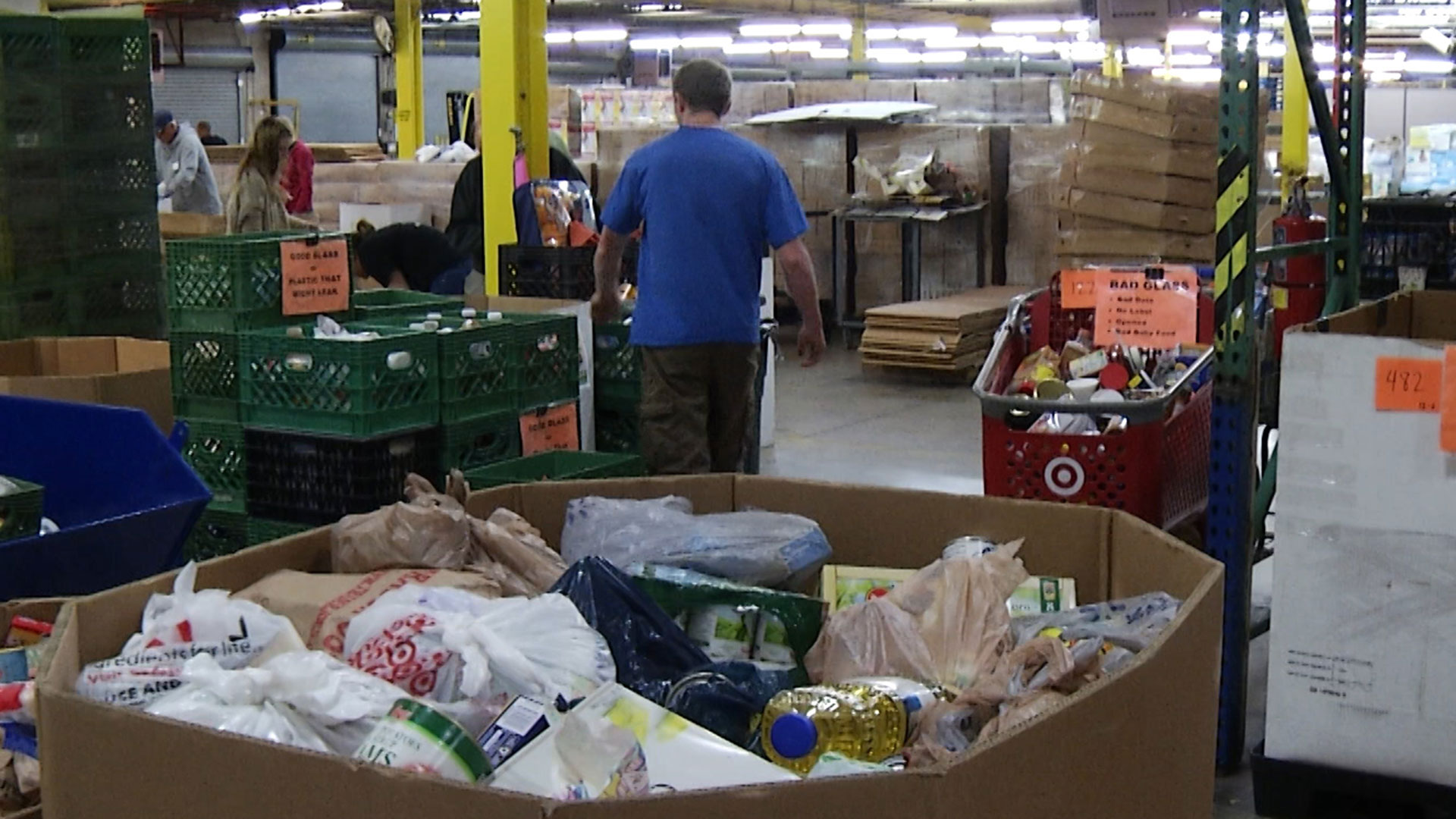 The Community Food Bank of Southern Arizona provides food to about 200,000 people each year.
The Community Food Bank of Southern Arizona provides food to about 200,000 people each year.
With 1 in 9 Arizonans lacking reliable access to a source of nutritious, affordable food, food insecurity continues to grow along with the cost of living.
And access isn’t the only food issue facing Arizonans: More than half are expected to face a diet-related illness by 2030, such as heart disease or diabetes, according to state officials.
AmeriCorps, the federal agency for national service and volunteerism, has granted the Arizona Food Bank Network $180,000 to support 33 on-the-ground volunteers who will serve at food banks across Arizona in hopes of reducing food insecurity.
The grant – funded by the American Rescue Plan and created in response to the COVID-19 pandemic in 2020 – is part of the AmeriCorps VISTA (Volunteers in Service to America) program. A pilot program distributed four awards totaling $2 million to hire 100 volunteers in New Hampshire, Maine, Ohio, and Texas.
With more than 55 food deserts in Maricopa County alone, and not enough volunteers serving at local food banks and homeless shelters, AmeriCorps expanded the initiative to Arizona, Alabama, Arkansas, and Puerto Rico.
The U.S. Department of Agriculture defines a food desert as an area with low access to affordable and nutritious food.
“There’s an incredible need that we have across the state to serve 1 in 9 individuals struggling with food insecurity,” said Angie Rodgers, Arizona Food Bank Network president and CEO. “It’s a tremendous need for both adults as well as children and seniors. We really need the support of those volunteers who want to give back to their communities from across the state, such as rural communities, here in urban Phoenix and tribes that reside in the Grand Canyon as well.
“This is kind of a crushing need; we’re seeing more people at food banks that we really need to be able to support. Because of COVID, we haven’t had (food bank) employees return back like we had hoped. I really think this will be a helpful kickstart to the economy, so individuals come back to food banking and to organizations that are working to fight hunger.”
Food insecurity is prevalent in Arizona because of a number of factors, such as limited time to cook, living far away from grocers, or lack of financial resources to eat well.
Only 17% of city residents claim to eat five or more servings of fruit and vegetables per day, and that percentage is decreasing, according to the Phoenix Food Action Plan.
The new grant will place 33 VISTA members across the state for the next three years.
VISTA workers serve to alleviate poverty in conjunction with local organizations in the areas they serve, and they receive a stipend. VISTA workers participating in the new initiative will dedicate a year to helping communities through food distribution or by participating in training programs to assist food banks with budgeting tips and other volunteer resources.
These include helping to organize volunteers, packing meal kits, and delivering meals to the community.
“These members will strengthen sustainable local food systems, improve the organizational capacity of food pantries and expand engagement, all of which will increase the ability for partners across the state to meet increased demand for nutritious food,” said Jill Sears, AmeriCorps mountain regional administrator.
The VISTA workers will serve 18 sites, including near the Grand Canyon and south and west Phoenix, which are the largest food deserts in metro Phoenix. The south Phoenix VISTA member also will assist local growers in their farming and business practices.
VISTA workers are in all age groups, but a majority are postgraduate students. Christopher Bodnar, who participated in VISTA in 2020 after graduating from Arizona State University, now works for United Food Bank, which is one of the 18 Arizona sites.
“Being born and raised here in Arizona, I thought AmeriCorps was definitely the route for me because I wanted to help the problems that are happening in my backyard,” Bodnar said. “In Arizona, you can see people looking for food, … so really trying to bring the dignity back into it is one of the goals that we try to have with our agencies.”
In addition to funding, the initiative creates a learning community with case studies for each project to inform plans for expanding the program. Organizations from across the country can collaborate to share best practices, discuss trends and learn and grow from one another’s work.

By submitting your comments, you hereby give AZPM the right to post your comments and potentially use them in any other form of media operated by this institution.